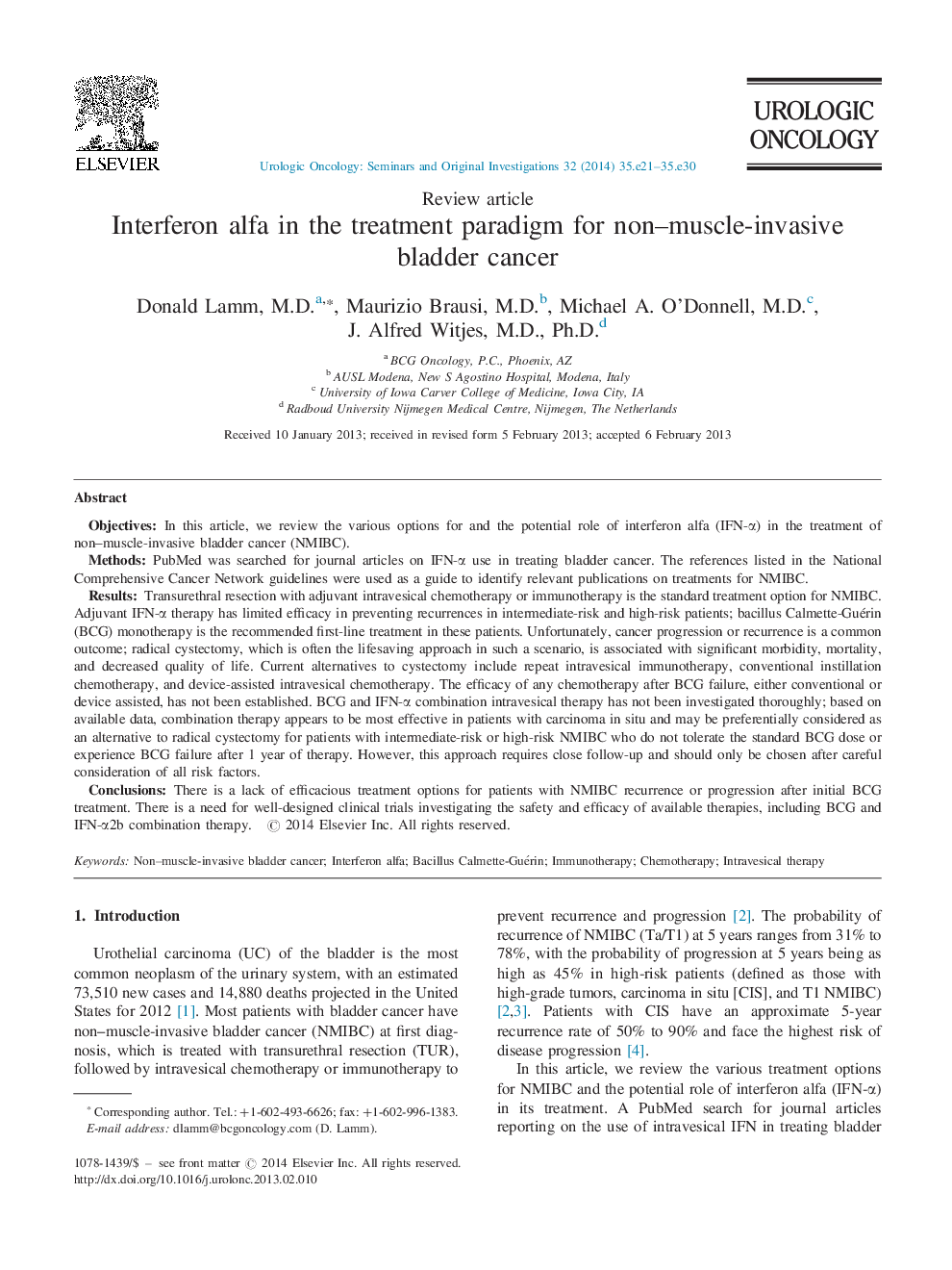| کد مقاله | کد نشریه | سال انتشار | مقاله انگلیسی | نسخه تمام متن |
|---|---|---|---|---|
| 6194445 | 1259362 | 2014 | 10 صفحه PDF | دانلود رایگان |

ObjectivesIn this article, we review the various options for and the potential role of interferon alfa (IFN-α) in the treatment of non-muscle-invasive bladder cancer (NMIBC).MethodsPubMed was searched for journal articles on IFN-α use in treating bladder cancer. The references listed in the National Comprehensive Cancer Network guidelines were used as a guide to identify relevant publications on treatments for NMIBC.ResultsTransurethral resection with adjuvant intravesical chemotherapy or immunotherapy is the standard treatment option for NMIBC. Adjuvant IFN-α therapy has limited efficacy in preventing recurrences in intermediate-risk and high-risk patients; bacillus Calmette-Guérin (BCG) monotherapy is the recommended first-line treatment in these patients. Unfortunately, cancer progression or recurrence is a common outcome; radical cystectomy, which is often the lifesaving approach in such a scenario, is associated with significant morbidity, mortality, and decreased quality of life. Current alternatives to cystectomy include repeat intravesical immunotherapy, conventional instillation chemotherapy, and device-assisted intravesical chemotherapy. The efficacy of any chemotherapy after BCG failure, either conventional or device assisted, has not been established. BCG and IFN-α combination intravesical therapy has not been investigated thoroughly; based on available data, combination therapy appears to be most effective in patients with carcinoma in situ and may be preferentially considered as an alternative to radical cystectomy for patients with intermediate-risk or high-risk NMIBC who do not tolerate the standard BCG dose or experience BCG failure after 1 year of therapy. However, this approach requires close follow-up and should only be chosen after careful consideration of all risk factors.ConclusionsThere is a lack of efficacious treatment options for patients with NMIBC recurrence or progression after initial BCG treatment. There is a need for well-designed clinical trials investigating the safety and efficacy of available therapies, including BCG and IFN-α2b combination therapy.
Journal: Urologic Oncology: Seminars and Original Investigations - Volume 32, Issue 1, January 2014, Pages 35.e21-35.e30